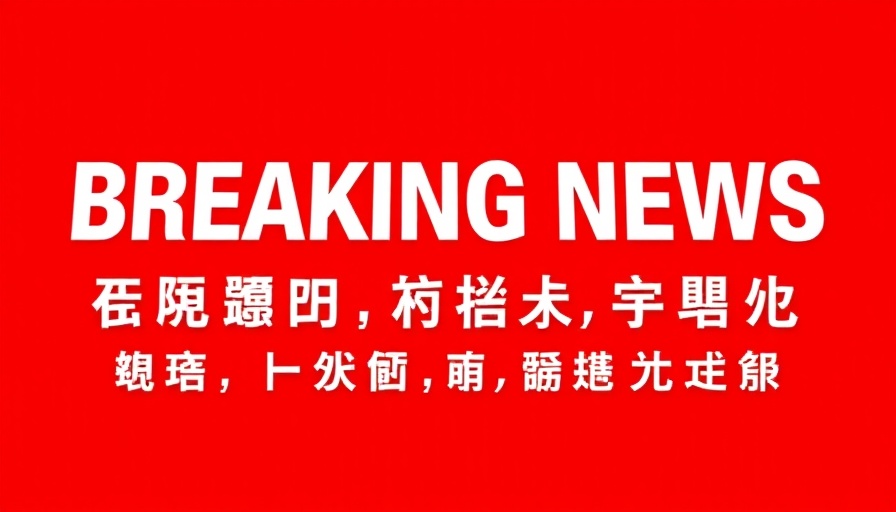
Sudan's Military Reclaims Power: A Strategic Victory
In a significant turn of events, Sudan's military announced the recapture of the Republican Palace in Khartoum, marking a decisive victory in the ongoing conflict with the rival Rapid Support Forces (RSF). This pivotal moment occurred on the 21st day of Ramadan, a time of spiritual reflection for many in the region. The Republican Palace, historically the seat of government and an emblem of national pride, symbolizes the military's growing dominance in a conflict that has plagued the country since April 2023.
In 'Sudan army retakes presidential palace: military source,' the discussion dives into the current status of Sudan’s military conflict, exploring key insights that sparked deeper analysis on our end.
The Historical Context of Sudan’s Power Struggles
Understanding the current battle for power in Sudan necessitates a look back at the nation’s tumultuous history. Following the ousting of President Omar al-Bashir in 2019, Sudan has faced political instability. Factions within the military and paramilitary groups have vied for control, creating a volatile environment. The RSF, originally formed to counter Darfur's insurgency, has since expanded its influence, complicating the political landscape and weaving a narrative filled with conflict and violence.
Current Events and Their Global Implications
The recent reclamation of the Republican Palace signals a potential shift in power dynamics, but it is essential to acknowledge that the RSF remains a formidable presence in other territories. Cities like Al-Malha continue to see heavy fighting, and the RSF has not officially conceded defeat. As global observers monitor these developments, analysts are increasingly concerned about the implications for regional stability and international relations within Africa.
Understanding the Emotional Toll of War
For the civilians caught in the crossfire, the impact of this struggle extends beyond physical boundaries. Thousands have been displaced, families torn apart, and communities decimated. This humanitarian crisis emphasizes the urgent need for political solutions to restore peace. An emotional lens reveals the deeper struggles of Sudanese people, who yearn for a return to stability and governance methods accountable to the populace.
What Lies Ahead? Future Predictions for Sudan
Looking to the future, analysts predict continued conflict as both factions refuse to yield ground, indicating a protracted struggle ahead. Current military advances may bolster the army's morale temporarily; however, the RSF still maintains control over key regions, suggesting a long and arduous road to comprehensive peace. Without concerted efforts towards diplomatic engagement and dialogue, the potential for escalation remains high.
Political Complexities and Diverse Perspectives
The evolving landscape of Sudan’s conflict illustrates the complexities of multiple interests vying for control. International perspectives are varied; while some countries support the military’s actions, others have condemned the violence. This divergence of views emphasizes the need for a balanced approach to understanding the intricacies of Sudanese politics.
Decisions to Make with Insight into Sudan's Conflict
For policymakers and international bodies, the implications are clear: proactive engagement is essential. Monitoring developments and facilitating dialogue between competing factions can help pave the way for peace. Moreover, humanitarian efforts must be scaled up to address the needs of displaced populations. It is an opportunity for global leaders to unify their responses to foster sustainable solutions.
Taking Action: The Role of Global Citizens
The narratives emerging from Sudan compel us, as global citizens, to engage with the stories of those affected by conflict. Following developments, advocating for humanitarian support initiatives, and promoting awareness within our communities will contribute to a sustained dialogue aimed at addressing the complexities of Sudan.
In light of the recent developments surrounding the Republican Palace's recapture, which highlights the overarching theme of power struggles in Sudan, it’s essential to foster a deeper understanding of the region’s complexities. We encourage our readers to stay informed about African current events, engage in informed discussions, and support diplomatic efforts aimed at restoring stability in Sudan.
 Add Row
Add Row  Add
Add 




Write A Comment